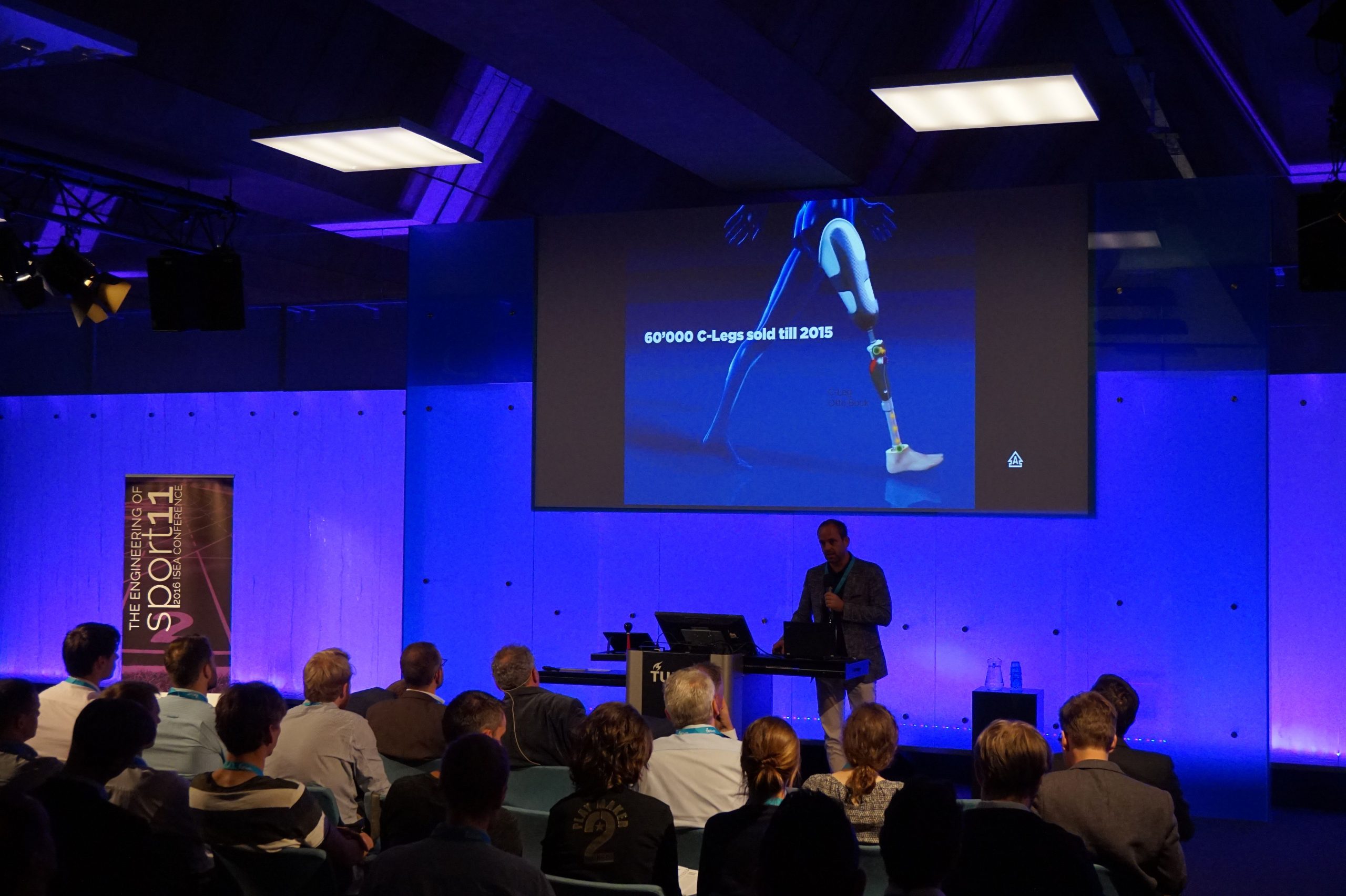An international group of designers, educators, scientists, students and industry leaders from 23 countries joined forces for a series of thought-provoking panels and inspiring presentations at ISEA 2016.
The four day conference, which focused on the world of sports technology, took place at TU Delft from 11 – 14 July.
Prior ISEA conferences have been held in cities including Sheffield and Boston. The decision was made to host the 11th one at TU Delft due to the university’s ongoing commitment to sports engineering. “One of the main reasons for hosting the ISEA conference in Delft is because we have lots of active members in the sports community,” said Dr. A.J. Jansen, a professor from Industrial Design Engineering who helped organise the event. “We perform research and we publish in this area. We also have a number of sports education programmes so we were an attractive partner for the conference.”
In addition to exhibits and demonstrations hosted by sponsors, sports tech companies and teams from the DreamHall, ISEA 2016 featured tours of campus labs and an Olympics-themed event in honour of the upcoming summer games in Rio de Janeiro. The conference concluded with a dinner and an awards ceremony at Lijm & Cultuur, an event space in Delft housed inside a former factory.
There was also a series of lectures led by keynote speakers from TU Delft and other universities. Dr. Robert Riener, a professor in Sensory-Motor Systems from ETH Zurich, discussed his extensive research in this field in addition to his role as the initiator and organiser of Cybathlon 2016, an international competition for disabled athletes who use bionic assistive technology. “It’s important to discuss and examine the limitations of this technology,” Dr. Riener said during his keynote presentation. “People are spoiled by Hollywood. There is no Terminator, there is no Iron Man and we want to show that this is still a problem. It’s difficult to provide good technology but we must push on to support its development.”
Like in many other areas of research and development, the advancement of sports technology can seem downright glacial at times. The process can be frustrating and tedious. “Sports technology develops in increments,” Dr. Jansen said. “If you look at the top athletes, in order to win a one second advantage in a skating race, for example, you need an awful lot of technology to gain that one second. So what we do with all of this technology is to help these athletes improve just a little bit.”



Comments are closed.